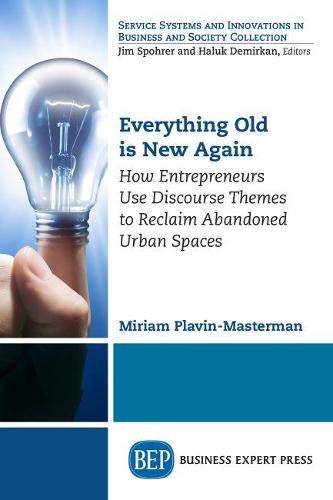Readings Newsletter
Become a Readings Member to make your shopping experience even easier.
Sign in or sign up for free!
You’re not far away from qualifying for FREE standard shipping within Australia
You’ve qualified for FREE standard shipping within Australia
The cart is loading…






This title is printed to order. This book may have been self-published. If so, we cannot guarantee the quality of the content. In the main most books will have gone through the editing process however some may not. We therefore suggest that you be aware of this before ordering this book. If in doubt check either the author or publisher’s details as we are unable to accept any returns unless they are faulty. Please contact us if you have any questions.
Recent scholarship on institutional entrepreneurship highlights the kinship between for-profit entrepreneurship and the equally transformative innovation and initiative of entrepreneurs in the non-profit, community, and policy-activist fields. This expanded exploration of entrepreneurial potential has become important in the creative destruction-or, more accurately, creative reclamation -of abandoned or under-used industrial relics and urban space. This book explores case studies in New York, Chicago, and Philadelphia, where community groups have deployed or are attempting to deploy symbolism and narrative to re-purpose abandoned urban infrastructure into urban public spaces. The author combines interviews, document analysis, site visits, and census tract data to determine how Friends of the Park organizations successfully navigate institutional settings to create public spaces and manage the discourse around these proposed spaces. In-depth descriptions are an essential component of the process. If a certain kind of unsuccessful discourse theme (or successful one) exhibits itself in a large portion of the potential population, it will likely show in this small sample; if the discourse exhibits itself in a very small portion, it very unlikely that it will show. Small samples, in other words, are a wide-mesh net, convenient for catching the big themes.
$9.00 standard shipping within Australia
FREE standard shipping within Australia for orders over $100.00
Express & International shipping calculated at checkout
This title is printed to order. This book may have been self-published. If so, we cannot guarantee the quality of the content. In the main most books will have gone through the editing process however some may not. We therefore suggest that you be aware of this before ordering this book. If in doubt check either the author or publisher’s details as we are unable to accept any returns unless they are faulty. Please contact us if you have any questions.
Recent scholarship on institutional entrepreneurship highlights the kinship between for-profit entrepreneurship and the equally transformative innovation and initiative of entrepreneurs in the non-profit, community, and policy-activist fields. This expanded exploration of entrepreneurial potential has become important in the creative destruction-or, more accurately, creative reclamation -of abandoned or under-used industrial relics and urban space. This book explores case studies in New York, Chicago, and Philadelphia, where community groups have deployed or are attempting to deploy symbolism and narrative to re-purpose abandoned urban infrastructure into urban public spaces. The author combines interviews, document analysis, site visits, and census tract data to determine how Friends of the Park organizations successfully navigate institutional settings to create public spaces and manage the discourse around these proposed spaces. In-depth descriptions are an essential component of the process. If a certain kind of unsuccessful discourse theme (or successful one) exhibits itself in a large portion of the potential population, it will likely show in this small sample; if the discourse exhibits itself in a very small portion, it very unlikely that it will show. Small samples, in other words, are a wide-mesh net, convenient for catching the big themes.